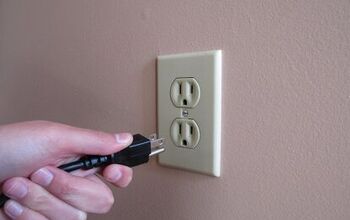What To Do If Your Neighbor Won’t Cut Their Grass

It’s hard to take pride in your lawn if your house is bordered by a neighbor who won’t cut their grass. Not only does it look bad, but your neighbor’s overgrown grass can also negatively impact your lawn. Understandably, you may struggle with what to do if your neighbor won’t cut their grass.
Talk to your neighbor about their lawn or even write an anonymous letter if they won’t cut their grass. If you live in an HOA neighborhood, you can report your neighbor to the board so they will handle the situation. You can also offer to cut their grass for them if they haven’t done it because of physical limitations.
Contact the city if the problem goes on for weeks or months and there is no end in sight. Follow along as we explore what to do if your neighbor won’t cut their grass.
How to Deal With A Neighbor Who Won’t Mow Their Lawn
1. Mention It To Your Neighbor
Do you know your neighbor well? If so, it’s worth simply telling them that you wish they would cut their grass. Granted, this can be uncomfortable if you have no relationship, but it’s worth it if the tall grass is a problem.
Prepare yourself for the conversation and make sure to keep a friendly tone throughout. The last thing you want is to make your neighbor feel like you’re insulting them. Come up with some of the reasons why their overgrown lawn inconveniences you.
For example, their overgrown lawn can attract pests to your yard that otherwise wouldn’t be there. You can also write a letter if that makes you more comfortable, and it is often just as effective.
2. Tell Your HOA
Is your neighborhood associated with a homeowner’s association? Homeowners’ associations, or HOAs, have lots of power when it comes to setting standards within a neighborhood. This often entails everything from noise curfews and decorations to lawn maintenance.
HOAs typically monitor the houses within the neighborhood to make sure every member of the association is compliant. However, some houses slip through the cracks, and they may not know that your neighbor won’t cut their grass.
Simply notify the board of the HOA that your neighbor won’t cut their grass, and they will handle it from there. You can also start an HOA in your neighborhood if there isn’t one already. However, that’s only possible with the support of your neighbors.
3. Talk To Your Other Neighbors
Surely you can’t be the only person around you who is annoyed with your neighbor’s unkempt lawn. Strength in numbers is a real sentiment, and you can use that to your advantage. Talk to other people in your neighborhood who you’re friendly with and see how they feel about your neighbor’s yard.
You can likely get through to your neighbor if enough people voice their opinions. Keep in mind that you don’t want to gang up on your neighbor. Make sure that everyone who addresses your messy neighbor uses a friendly, diplomatic tone.
After all, they are just as much a part of the community as you are. You can all keep the letters anonymous, unless you want to talk to them directly. While you can’t make your neighbor do anything, the support from others will validate your point.
4. Create A Barrier
Understandably, you may feel weird about your neighbor’s messy lawn touching your yard. In that case, it’s a great idea to create a barrier with hedges or even a fence. Building a fence yields faster results, but it’s also expensive.
However, hedges can take a long time to grow, so you won’t enjoy the benefits for months to come. Look for fast-growing hedges like Leyland Cypress if you’re in a hurry. Otherwise, fences provide both privacy and security at your home.
It only takes 1-2 days to install a fence in most cases. That said, the timeline and overall cost depend on the type of fence and the size of your property. This won’t get your neighbor to cut their grass, but at least you won’t have to see it anymore.
5. Offer To Mow Their Lawn
Is your neighbor elderly or physically unable to cut their grass? If so, you can offer to mow their lawn and help them. Not only will this solve your problem, but it will also help someone who could probably use it.
After all, that’s what being a great neighbor is all about. Make sure to offer to mow their lawn in a nice way that doesn’t seem like you’re accusing them of neglecting their yard. For example, you could mention it to your neighbor when you’re already about to mow your lawn.
It’s no different than offering to shovel your neighbor’s driveway when you know that they would struggle to do it. This can set a great example for them, and they may simply hire a lawn service or ask you to do it again.
6. Contact The Local Government
Overgrown lawns often go hand-in-hand with other neglectful acts. For example, you may find trash and items that simply don’t belong in a yard. Otherwise, it could just be a matter of a neglected lawn that hasn’t been mowed in weeks or longer. In that case, it’s time to call the local government.
The local government can step in to enforce codes and bylaws in their jurisdiction. Code violations come along with fees, but the process sometimes starts with a warning. In other words, you don’t have to worry about your neighbor losing thousands of dollars.
It’s up to them to comply with local codes once they receive a warning from the local government. This is also a great option if you don’t want to talk to your neighbor about their lawn. The city won’t tell your neighbor that it was you who tipped them off about the unkempt lawn.
Summing It Up
Politely ask your neighbor to cut their grass if their unkempt lawn is an eyesore in the neighborhood. You can also report your neighbor to the HOA if your neighborhood has one. Otherwise, you can offer to mow their lawn or encourage your other neighbors to mention the problem to your neighbor. Your last resort should be to report your neighbor to the city.
Related Guides:

Nick Durante is a professional writer with a primary focus on home improvement. When he is not writing about home improvement or taking on projects around the house, he likes to read and create art. He is always looking towards the newest trends in home improvement.
More by Nick Durante














![What to Do When Your Kwikset Door Latch Won't Retract [Quick Fix]](https://cdn-fastly.upgradedhome.com/media/2023/07/31/9071056/what-to-do-when-your-kwikset-door-latch-won-t-retract-quick-fix.jpg?size=350x220)












